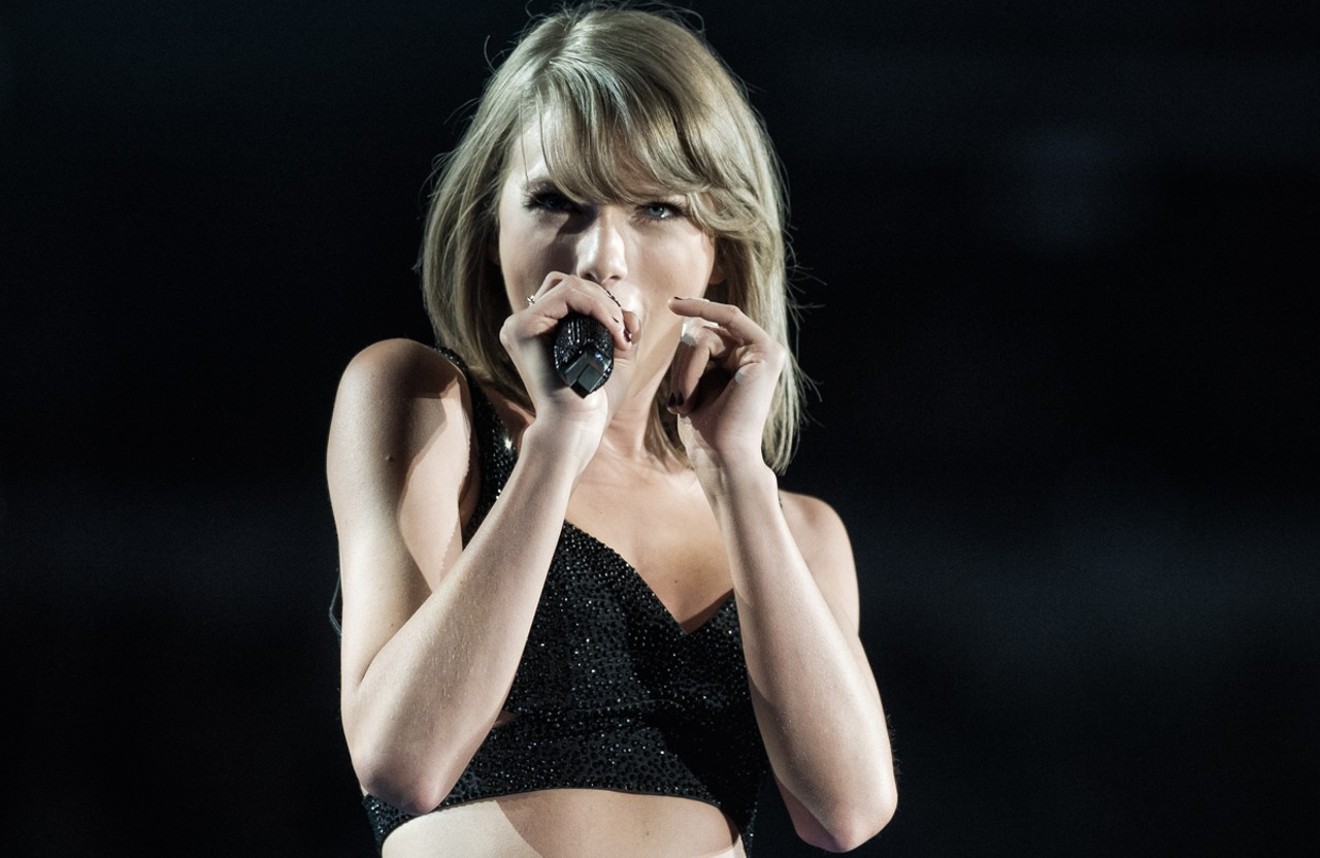Yes, the world feels like it’s crumbling right now and we’re about to terribly mismanage what’s left of it. But, somehow, Taylor Swift, Kim Kardashian and Kanye West still managed to get their share of headlines this week.
Let’s try to waste as little of your time with the newest Swift-West feud and sum up: After a long history of Swift-bashing from West — sandwiched between the time he stormed the MTV Awards stage to interrupt Swift’s speech to the time he put an explicit wax figure replica of her naked body in bed in one of his music videos — in 2016, Kardashian leaked an excerpt of a phone call between Swift and her husband, rapper West. The video proved, Kardashian said, that West had called Swift before his album release to let her know that there was a line about her in his song “Famous.”
In the video leaked by Kardashian, West can be seen telling Swift a close-enough variant of the finished lyrics, “I feel like me and Taylor might still have sex,” though he’s never seen disclosing the published lyrics, which continue with the words, “Why? because I made that bitch famous.”
At the time “Famous” came out, Swift expressed her disapproval. Her publicist stated: “Kanye did not call for approval, but to ask Taylor to release his single ‘Famous’ on her Twitter account. She declined and cautioned him about releasing a song with such a strong misogynistic message. Taylor was never made aware of the actual lyric, ‘I made that b***h famous.'”
Kardashian displayed poor reading comprehension skills and seemingly only read the part that said “Kanye did not call for approval,” which is technically correct — as we now see in the complete video, he did indeed call to ask Swift to release his song through her platform — and leaked part of the tape where West recorded himself in his studio calling Swift.
As a result, Swift was accused of having spun the truth to play the victim, and was bullied relentlessly by West and Kardashian fans.
The new complete video, leaked anonymously on Monday, shows not only that West called to ask Swift to promote his single, but that she was hesitant in her response, and that she gave him permission to use the line about sex.
Swift has been vindicated in the eyes of fans, or so the endless press about the incident tells us, and we’re not sure why. Isn’t the “proof” that West never referred to her as “that bitch” on the phone call that had already leaked? Until now, the lack of evidence spoke for itself, but some people wanted fuller context.
The two camps are now splitting hairs about their interpretation on that conversation.
But again, there is no indication that he showed her the lyric “I made that bitch famous.” And that detail matters.
Argue among yourselves all you want, but the word “bitch” always takes me from fairly level-headed to Charles Manson levels of crazy before the “tch” sound has even finished coming out of the speaker’s mouth.
For many women, the word “bitch” has a similar hair-raising effect. Unlike “asshole,” “jerk,” “bastard” or “piece of shit,” which apply to anyone regardless of gender, “bitch” holds double the weight as an insult that’s targeted specifically at women. We don't need a "for her" insult any more than we need unnecessarily gendered products like pink pens or scissors.The only form of “bitch” that seems to be acceptable is a general “bitch” that refers to no one in particular. Like, “It’s Britney, bitch.”
tweet this
The misogynistic quality of the insult is what holds the most punch — it’s the brass you wear on your knuckles when you really want to knock someone down.
It's also commonly used when we mean to dismiss femininity as unfavorable. We use the b-word to declare a man, or any person, as weak or having generally “undesirably” “female” traits like fear and indecisiveness, as in “don’t be a little bitch.”
It’s also used to identify a person as submissive to another. For example, “His prison bitch.”
The c-word, though just as ugly, is much more infrequent and has its own unique flair, so let us focus on “bitch,” which has become as common as “guy” or “dude,” when used as a sexualized term for “women,” like the classic “hoes.” But, there’s also a more neutral form of “bitches,” which just means “women” to some men — a step up from referring to women as “pussy.”
The word “bitch” has come to mean many things, almost none of them good. As a verb it means to whine, nag or pester someone else, and as a noun it mostly refers to a hateful woman.
In the ’90s, “bitch” was a mantra in a one-hit anthem by Meredith Brooks, and the word became more mainstream than ever. Its use tripled on prime-time TV, and even innocuous shows like Friends used it to give the scripts some edge. Mind you, the six beloved coffee-drinking main characters didn’t use it about each other, but about side characters viewers weren’t attached to. Even they, a mostly privileged all-white bunch, knew that the insult has a gut-churning effect on viewers.
There’s, of course, a re-appropriation of the word that’s popular with “basic” girl culture (it was a staple of Paris Hilton’s and Nicole Richie’s in the early 2000s, along with “that’s hot”), and with women who use it to refer to themselves and their friends in a positive light, like “boss bitch” or “head bitch in charge.”
There’s also Bitch Media, a feminist platform, and Lizzo’s statement lyrics in "Truth Hurts," which became part of internet slang in the last few years, “Turns out I’m 100 percent that bitch.”
The use of the b-word among women, though, is in line with other minorities and cultures appropriating demeaning words for their own use, to repurpose as they see fit. If you’re not in the club, they’re not for you.
The only form of “bitch” that seems to be acceptable is a general "bitch" that refers to no one in particular. Like, “It’s Britney, bitch.”
The point is, many women feel very differently about what the word conveys, and almost none of us want to hear it from a straight man in a negative circumstance. Especially not from Kanye West, who’s like the narcissist ex-boyfriend that Swift never asked for.
While everyone is allowed some artistic license, a statement like, “I made that bitch famous” not only could be perceived as an attempt by West at appropriating Swift’s success — just as he appropriated her time when he believed he should redistribute her ’09 MTV Award to Beyoncé. No judgment here, but unlike Kim, Swift built a brand on her music and not on her ability to give men a boner. As obnoxiously cute as it was, Swift sold country-pop and songs about prince-and-princess romance. She was too young to sell sex appeal, and even now she’s never directly marketed her sexuality, and if she had, that would’ve been her business.
But given that Swift has operated as a one-woman show from the beginning, it’s particularly insulting to imply that Swift, who seemingly owes her success to no man, would owe it to Kanye of all people. And not for his help, mind you, but for his public humiliation.
Swift was already famous, which is why she was winning video of the year over Beyoncé. It seems unlikely that she would have any desire to be called “that bitch” by Kanye West, especially when framed in that context.
At some point, if and when we survive the apocalyptic spread of coronavirus, there will be a moment we bask in the sunlight as we emerge from our house arrest screaming “war is over,” bright-eyed and grateful as Kimmy Schmidt when she escaped the bunker. And for a day or two we’ll have a renewed Ebenezer Scrooge-sense of appreciation and solidarity. But eventually, we will go back to our old sexist ways. And this shit will matter, like it has for centuries.












